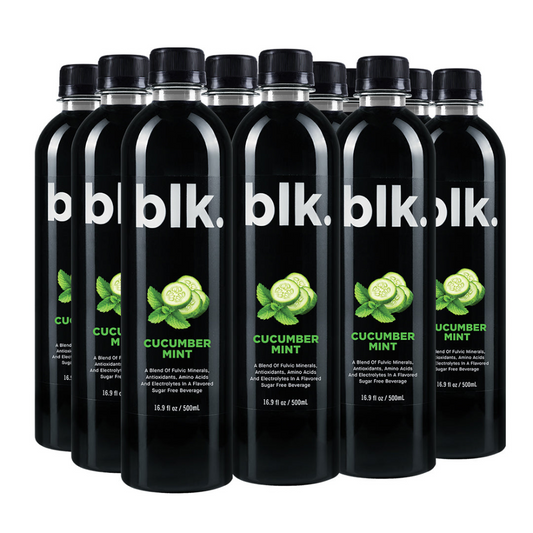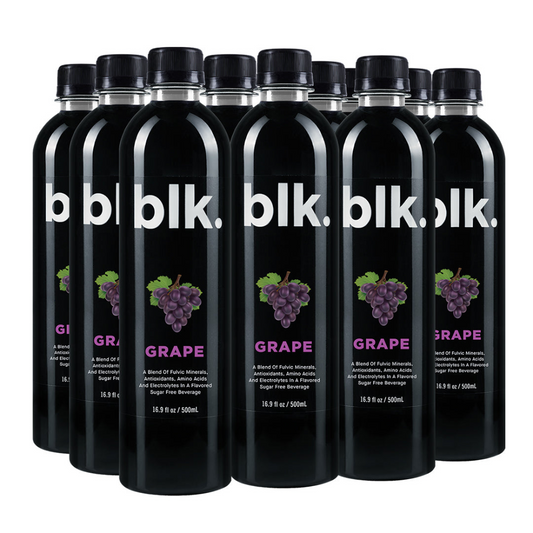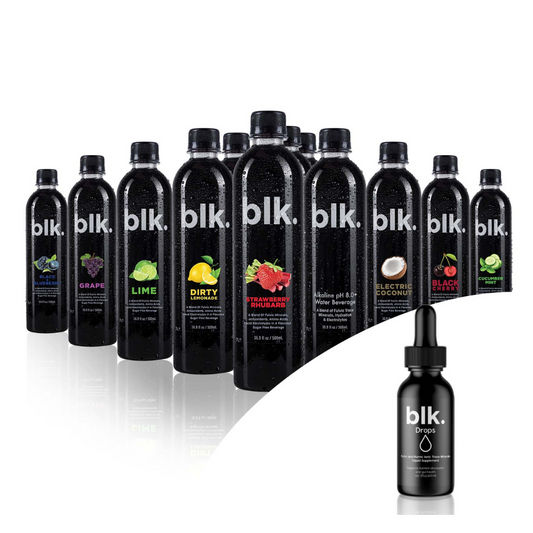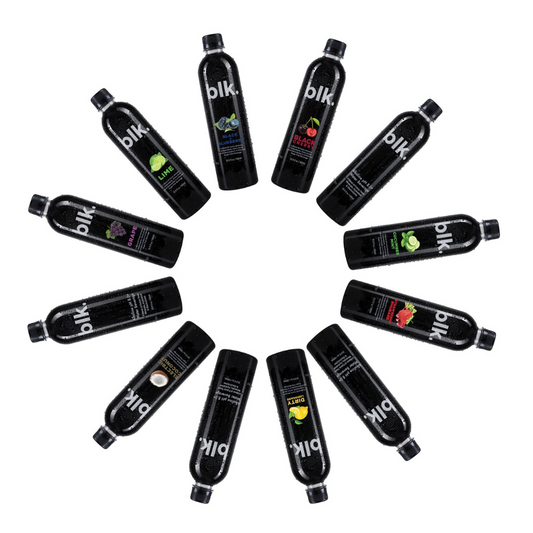
How to Choose The Right Protein Powder For Your Needs
This Guide Seeks to Teach You:
- What you should look out for when choosing a protein powder
- How to read a protein powder supplement label
- How different categories of protein powder influence your choice of protein powder supplement
- How different production techniques and quality determine your choice of protein powder
Protein powder is a dietary supplement popularly used to nourish the body, especially by fitness enthusiasts. Contrary to what some people think, it is not used for bodybuilding only. There are numerous reasons why people use protein powders; to improve athletic and sports performance, build muscle mass, weight management, and generally achieve health and fitness goals.
The essence of consuming protein powder is to maximize protein intake since protein is a vital macronutrient that supports tissue repair, muscle building, and supporting homeostasis. Sometimes you have fitness goals, but your regular diet can’t sustain the protein levels your body requires.
What do you do? The answer is protein powder supplements, and you have many options. So, Ripped.com, US leading online store for health supplements helps you with this guide providing insight into how you can choose the right protein powder. You need to know the available protein powders in the market, how they stack up with other supplements and food options, and which powder suits your needs.
What Should I Look For in Protein Powder Labels?
Before you adopt protein powder supplements into your daily diet, it is imperative for you to comprehend that the serving instructions on the product labels are just suggestions. However, this does not mean that you should ignore them. The serving instructions are recommendations that are deemed ideal by the manufacturer, but they are not universal. This means that how you use the supplement depends on your bodily and nutritional needs.
Due to the variation in how to use and what protein powder supplements different people require, you need to know how to decipher the product label instructions. If you don’t familiarize yourself with the label, you probably won’t know the appropriate dose for your body for the intended purpose. Some of the things you should check for on the protein powder supplement label include the following:
Protein Source
The protein source is essential since high-quality protein intake is the whole point of getting a protein powder supplement. For instance, whey protein powder would be ideal compared to casein powder since it is easily absorbed and digested by the body. A more digestible protein powder is more effective for muscle synthesis.
Additionally, a vegan or vegetarian wouldn’t go for a protein powder whose protein source is milk-based or beef based. Also, there is limited research on the effectiveness of collagen protein. Thus, it wouldn’t be an ideal protein powder. In a nutshell, the protein source is the first step in determining whether the supplement suits your needs.
Food and Drug Administration
Compared to food and other consumables, supplements are not strictly regulated. So it is difficult to authenticate their safety and quality. However, the supplements that are tested and approved by the FDA testify to the quality of purchased protein powder supplements. The approval statement is located on the product label. Furthermore, ensure that the ingredients used in the product are not banned substances or artificial ingredients.
Branched-Chain Amino Acids (BCAAs) Ratio
BCAAs are the building blocks of protein. There are three amino acids that are crucial for muscle growth and repair. In most protein powder labels, you’ll find leucine (two parts), isoleucine (one part), and valine (one part) listed, respectively. This ratio suits athletes and fitness buffs who want to avoid fatigue, build muscle, or lose fat. So, if you don’t see these essential amino acids in a protein powder supplement, look for another one.
Carbs Cap
An ideal protein powder should have a carb cap of about 3%. Carbs are utilized in sugar creation, which, in turn, aids in the absorption of amino acids and muscle growth.
Try To Avoid Artificial Ingredients (Sweeteners)
Some manufacturers include sweeteners in their products to limit their calorie and carb content. However, studies reveal that artificial sweeteners could negatively impact gut bacteria. So, the best option would be to try to avoid sweetened protein powders.
What is The Ideal Protein Powder Quantity?
The recommended protein intake should be 0.36 grams per lb. This means that if you weigh 100 lbs, you will need about 36 grams not to be classified as ‘protein-deficient.’
Given the numerous benefits of protein in your body, it is important to understand that the right protein powder (taken at the appropriate time and quantity) can help you achieve optimal results. The recommended dosage on the protein powder supplement label is more often accurate for an average person looking to boost their protein intake. However, your nutritional demands determine the quantity of protein powder you should take. If you are protein-deficient, you may experience symptoms such as:
- Losing muscle mass
- Bones easily break
- Slow healing from bruises and cuts
- Hair, nail, and skin complications
- Depression or mood swings
You should note that these are not universal symptoms, and most people may not experience them.
Evaluating Protein Absorption and Digestibility in Different Protein Powders
When choosing protein powders, you need to assess the protein powder absorption and digestibility levels. Whey protein powder, for instance, can be used as a meal replacement because it is easily digestible and offers high-quality protein intake. This improves your muscle mass while also boosting your satiety. So, would you choose a protein powder supplement that takes too long to be digested over whey protein powder? Unless the latter contains undesirable ingredients, choosing it is a no-brainer.
Choosing Protein Powders For a Keto Diet
Did you know that you can use protein powders for a keto diet? To optimize muscle growth, your carbohydrate levels need to stick to the recommended carbs bank. If you exceed your daily maximum carb intake, then the impact of the protein in the protein powder is limited.
So, what are the best protein powders for a keto diet? For instance, dairy-free, gluten-free, and organic protein powders have a low carbs content. However, plant-based protein powders are way richer in carbs than egg-based and whey protein powders. Typically, the carbs content in a protein powder should be at most 8 grams. You should also monitor how your body reacts to protein powders. If you must, jot down the symptoms when experimenting with these protein powders, then consult a doctor.
Another crucial nutrient for those on keto diets is fiber. The Keto diet restricts the consumption of foods rich in high fiber. This means that if you are on a keto diet, you might end up being low on fiber. Well, the good news is that protein powders such as egg-based and whey proteins offer high-quality protein and are rich in fiber. These two protein powders are recommended over plant-based powders, which are richer in fiber because plant-based proteins have a higher carb content. The essence of the keto diet is to avoid foods rich in carbs. Therefore, using plant-based protein powders would make the diet moot.
Plant-Based vs Animal-Based Protein Powder: Which Category Suits Your Dietary Needs?
When choosing protein powders, you need to know the categories they fall under on an animal or plant basis. Having all the information about different categories of protein powders will help you figure out your dietary needs.
Plant-Based Protein Powders
You need to know which plant-based protein powders are complete or incomplete protein sources. As you will see below, not all of them are complete protein sources. However, you can consume a diet with various protein sources to compensate for missing essential amino acids in chosen incomplete protein powder.
Hemp Protein Powder
Hemp protein is obtained from grounded hemp seeds, so it is a good choice if you are looking for whole-food protein powder. This powder is rich in fiber and omega-3 fats. However, it lacks lysine (an essential amino acid), thus making it an incomplete protein.
Pea Protein Powder
Some of the distinguishing features of pea protein powder include the following:
- Contains arginine, glutamine, and lysine, which are essential amino acids
- Inexpensive
- Hypo-allergenic
- Highly digestible
However, pea protein powder is an incomplete protein since it is low in EAA methionine.
Soy Protein Powder
If you are looking for a top protein powder that supports muscle growth, soy protein is a good option since it is a complete protein. Research studies suggest that soy protein is as good as whey protein when used to promote lean muscle mass and strength during strength training. You should also know that soy protein is a relatively common allergen.
Animal-Based Protein Powder
Under this category, there are milked-based protein powders and others obtained from animal protein.
Milk-Based Protein Powders
The most common protein powders are milk-based and are all complete protein sources. They include:
- Whey Protein - Compared to other protein powders (including plant-based proteins), whey is rich in essential BCAAs, whey protein contains high-quality protein, and is highly digestible. You’ll commonly see athletes and fitness enthusiasts take whey protein shakes after workouts. So, it is generally considered the best protein powder for muscle gain.
- Casein Protein - Unlike whey, casein protein is slowly digested and hence unsuitable for optimizing athletic or workout performance. However, if you are looking for a protein supplement to take before bed, then casein is recommended.
- Blends - When you opt for a supplement made of protein concentrate or protein isolate, it comes with whey and casein. Sometimes manufacturers also list them separately on the label as micellar casein and whey protein isolate.
The milk-based protein powder you choose depends on why you want to increase your protein intake. Whey protein should be the first choice for athletes and bodybuilders since it effectively stimulates post-workout recovery. However, an average person would probably purchase without caring much about absorption and digestibility.
Other Animal-Based Protein Powders
If you are sensitive to dairy products (lactose intolerant, vegan, or vegetarian), then there is no need to worry. There are still some animal-based protein powders you can use. They include:
- Collagen Protein - Collagen is commonly used as a bone, gut, joint, and skin health supplement. However, it is an incomplete protein source, so it is not as popular as other animal-based proteins.
- Egg-White Protein - Egg-white protein is a complete protein source suitable for people who are allergic to dairy products.
- Beef Protein - As the name suggests, this protein powder is obtained from beef. Even though its nutritional profile is almost similar to collagen, some studies suggest that beef protein isolate may be as effective as a whey protein powder in promoting muscle growth.
Choosing Protein Powders Based on Production Techniques
You can choose either of the three protein powder forms (concentrates, isolates, or hydrolysates) depending on the amount of protein intake you seek to achieve. If you are looking for the best protein powder for your ideal weight , you should consider something with high-quality protein and fewer fats & carbs.
Concentrates - The process of extracting protein is moderate, and the protein level is between 35-80%. Acids or Enzymes together are worked with heat to extract protein concentrates from foods (whether animal or plant-based). However, concentrates still contain carbs and fats, so they may not be suitable if you are avoiding calories.
Isolates - When protein concentrates are further processed, isolates are obtained. The extra filtration process removes carbs and fats while retaining 90% protein. This makes isolates highly digestible. But they are still not calorie-free as they contain fear carbs and fats.
Hydrolysates - A further filtration process involving heating with acids or enzymes breaks down protein chains into smaller peptides to create protein hydrolysates. This protein form is highly digestible but contains less lactose since its pre-digested.
Final Word
Absorption and digestibility, production techniques, quality of ingredients, safety approval, protein source, type of protein powder, and sensitivities are crucial when choosing a protein supplement. You will also have to look at factors like the cost of the supplement so that you don’t exceed your budget.
Your dietary and nutritional demands will also determine which protein powder you choose. Before purchasing any protein supplement, check the product label to confirm whether it is worth your money and if it meets your nutritional demands.
Frequently Asked Questions
-
Are there any potential side effects or drawbacks to using protein powder?
-
I am a bodybuilder, which is the best protein powder for me?
-
How long should I use protein powder before seeing results?
-
Can I consume protein powder if I am pregnant or breastfeeding?
-
Can I use protein powder if I have kidney or liver problems?
-
How do I properly store protein powder?
-
Are there any protein powders that are gluten-free?




